 The number of older people is constantly increasing, and more and more people suffer from Alzheimer’s disease and other types of dementia. Apparently, seniors who take a daily multivitamin can improve their memory and slow down their cognitive decline, according to a meta-analysis that is published in Journal of Clinical Nutrition. Older people generally have increased need for certain vitamins and minerals because of poor nutrient absorption in the digestive system, impaired enzyme functions, oxidative stress, and regular use of medical drugs that can interact with the nutrients. But how do different vitamins and minerals affect brain health?
The number of older people is constantly increasing, and more and more people suffer from Alzheimer’s disease and other types of dementia. Apparently, seniors who take a daily multivitamin can improve their memory and slow down their cognitive decline, according to a meta-analysis that is published in Journal of Clinical Nutrition. Older people generally have increased need for certain vitamins and minerals because of poor nutrient absorption in the digestive system, impaired enzyme functions, oxidative stress, and regular use of medical drugs that can interact with the nutrients. But how do different vitamins and minerals affect brain health?
 Impaired sperm quality if one of the major reasons for involuntary infertility. Studies show that oxidative stress, an imbalance between harmful free radicals and protective antioxidants, causes damage to sperm cells. In a review article that is published in Reproductive Sciences, a group of researchers look closer at different molecular mechanisms and how vitamins C, E, selenium, zinc, and coenzyme Q10 plus other antioxidants protect the vulnerable sperm cells.
Impaired sperm quality if one of the major reasons for involuntary infertility. Studies show that oxidative stress, an imbalance between harmful free radicals and protective antioxidants, causes damage to sperm cells. In a review article that is published in Reproductive Sciences, a group of researchers look closer at different molecular mechanisms and how vitamins C, E, selenium, zinc, and coenzyme Q10 plus other antioxidants protect the vulnerable sperm cells.
 Antioxidants such as vitamins C and E are known to be inversely related to type 1 diabetes, which is an autoimmune disease. In a new Swedish study that is published in Nutrients, scientists have found that vitamin E also protects against type 1,5 diabetes, which is similar to type 1 and type 2 diabetes because it involves both autoimmune reactions reand insulinsistance. The scientists list different foods that are rich in vitamin E and also describe how vitamin E protects the pancreas against autoimmune attacks and oxidative stress.
Antioxidants such as vitamins C and E are known to be inversely related to type 1 diabetes, which is an autoimmune disease. In a new Swedish study that is published in Nutrients, scientists have found that vitamin E also protects against type 1,5 diabetes, which is similar to type 1 and type 2 diabetes because it involves both autoimmune reactions reand insulinsistance. The scientists list different foods that are rich in vitamin E and also describe how vitamin E protects the pancreas against autoimmune attacks and oxidative stress.
 According to Danish research, more than one in three women suspect that their birth control pills cause side effects. Other studies show that birth control pills affect the body’s ability to utilize several different B vitamins, vitamin C, vitamin E, magnesium, selenium, and zinc. The lack of these essential nutrients contributes to a number of common side effects such as fluid retention, blood clots, cancer, and depression.
According to Danish research, more than one in three women suspect that their birth control pills cause side effects. Other studies show that birth control pills affect the body’s ability to utilize several different B vitamins, vitamin C, vitamin E, magnesium, selenium, and zinc. The lack of these essential nutrients contributes to a number of common side effects such as fluid retention, blood clots, cancer, and depression.
- and antioxidants like selenium, Q10, and melatonin play a role in prevention and treatment
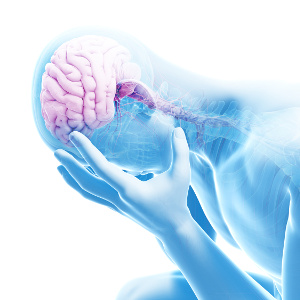 There is a link between depression, dementia and Alzheimer’s disease. Also, it appears that chronic stress contributes to oxidative stress and brain cell damage. In a review article that is published in the science journal Antioxidants, researchers look closer at how oxidative stress affects the brain. They also study how antioxidants can be included in the prevention and treatment of Alzheimer’s disease, and why the most promising results are seen with selenium, Q10, melatonin, vitamin E, turmeric, and polyphenols. With regard to depression, selenium, zinc, vitamin E, turmeric, and saffron have demonstrated the greatest potential.
There is a link between depression, dementia and Alzheimer’s disease. Also, it appears that chronic stress contributes to oxidative stress and brain cell damage. In a review article that is published in the science journal Antioxidants, researchers look closer at how oxidative stress affects the brain. They also study how antioxidants can be included in the prevention and treatment of Alzheimer’s disease, and why the most promising results are seen with selenium, Q10, melatonin, vitamin E, turmeric, and polyphenols. With regard to depression, selenium, zinc, vitamin E, turmeric, and saffron have demonstrated the greatest potential.
- with non-alcoholic fatty liver disease
 Weight-challenged children and teenagers have grown to become a global health threat, and the problem became even worse during the corona pandemic. Overweight is linked to a number of health problems, including non-alcoholic fatty liver disease that sets the stage for type 2 diabetes and other serious ailments. In a new review article that is published in Nutrients, researchers look closer at how a carbohydrate-restricted diet or the traditional Mediterranean diet can help to counteract the development of overweight and non-alcoholic fatty liver disease. Also, supplementation with vitamin E, vitamin D, fish oil, and probiotics can block the development of non-alcoholic fatty liver via different metabolic parameters.
Weight-challenged children and teenagers have grown to become a global health threat, and the problem became even worse during the corona pandemic. Overweight is linked to a number of health problems, including non-alcoholic fatty liver disease that sets the stage for type 2 diabetes and other serious ailments. In a new review article that is published in Nutrients, researchers look closer at how a carbohydrate-restricted diet or the traditional Mediterranean diet can help to counteract the development of overweight and non-alcoholic fatty liver disease. Also, supplementation with vitamin E, vitamin D, fish oil, and probiotics can block the development of non-alcoholic fatty liver via different metabolic parameters.
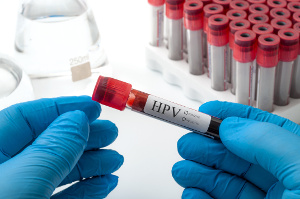 The majority of sexually active people contract HPV (human papilloma virus), of which there are several types. Normally, the infection goes away by itself but in some cases it becomes chronic. This increases the risk of serious cell changes in the cervix which, in worst case, can result in cervical cancer. An American study has found that having adequate levels of five different antioxidants – albumin plus vitamins A, B2, E, and folic acid – may lower papilloma virus infections that are linked to cervical cancer.
The majority of sexually active people contract HPV (human papilloma virus), of which there are several types. Normally, the infection goes away by itself but in some cases it becomes chronic. This increases the risk of serious cell changes in the cervix which, in worst case, can result in cervical cancer. An American study has found that having adequate levels of five different antioxidants – albumin plus vitamins A, B2, E, and folic acid – may lower papilloma virus infections that are linked to cervical cancer.
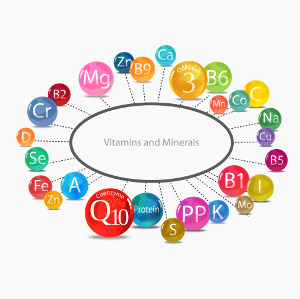 There are around 750,000 people in Denmark who take several medical drugs per day, and the number of users is on the rise. What many people are unaware of is that different drugs can disrupt the body’s ability to absorb or utilize one or several nutrients, especially things like B vitamins, vitamin C, vitamin D, vitamin K2, magnesium, potassium, calcium, zinc, iron, and coenzyme Q10. It is therefore vital to get sufficient amounts of the mentioned nutrients to reduce the risk of adverse effects.
There are around 750,000 people in Denmark who take several medical drugs per day, and the number of users is on the rise. What many people are unaware of is that different drugs can disrupt the body’s ability to absorb or utilize one or several nutrients, especially things like B vitamins, vitamin C, vitamin D, vitamin K2, magnesium, potassium, calcium, zinc, iron, and coenzyme Q10. It is therefore vital to get sufficient amounts of the mentioned nutrients to reduce the risk of adverse effects.
- that you can correct with diet changes and supplements
 PCOS – or polycystic ovary syndrome – is a problem that occurs in 5-10 percent of women of childbearing age. It is the most common cause of involuntary infertility. Related symptoms include tiredness, hirsutism (male hair growth), acne, and irregular menstrual periods. PCOS is often linked to instable blood sugar, increased risk of insulin resistance, overweight, cardiovascular disease, type 2 diabetes, and autoimmune diseases like Hashimoto’s thyroiditis that causes slow metabolism. Diet and exercise mean a lot in terms of prevention and treatment. The same is the case with different vitamins and minerals. We will be looking closer at B vitamins, vitamin D, vitamin E, and coenzyme Q10, plus magnesium, zinc, selenium, chromium, iodine, and fish oil. We will also be looking at how relevant supplements, according to science, can help control blood sugar levels and the hormone balance.
PCOS – or polycystic ovary syndrome – is a problem that occurs in 5-10 percent of women of childbearing age. It is the most common cause of involuntary infertility. Related symptoms include tiredness, hirsutism (male hair growth), acne, and irregular menstrual periods. PCOS is often linked to instable blood sugar, increased risk of insulin resistance, overweight, cardiovascular disease, type 2 diabetes, and autoimmune diseases like Hashimoto’s thyroiditis that causes slow metabolism. Diet and exercise mean a lot in terms of prevention and treatment. The same is the case with different vitamins and minerals. We will be looking closer at B vitamins, vitamin D, vitamin E, and coenzyme Q10, plus magnesium, zinc, selenium, chromium, iodine, and fish oil. We will also be looking at how relevant supplements, according to science, can help control blood sugar levels and the hormone balance.
 Everyone knows that exercise and sports activities are good for you, but overtraining and high-performance sport may increase your risk of oxidative stress, which is associated with acute injuries, inflammation and later risk of neurodegenerative disease such as Alzheimer’s disease and ALS (amyotrophic lateral sclerosis). It is therefore a good idea to take antioxidant supplements, as this may help prevent both acute and chronic injuries. A comprehensive article published in the science journal Nutrients looks closer at the relation between free radicals and antioxidants, which have different functions in connection with various types of physical activity. This is especially the case with vitamins A, C, and E plus selenium and zinc. It is also important to make sure to get enough vitamin D and omega-3 fatty acids for counteracting inflammation and oxidative stress.
Everyone knows that exercise and sports activities are good for you, but overtraining and high-performance sport may increase your risk of oxidative stress, which is associated with acute injuries, inflammation and later risk of neurodegenerative disease such as Alzheimer’s disease and ALS (amyotrophic lateral sclerosis). It is therefore a good idea to take antioxidant supplements, as this may help prevent both acute and chronic injuries. A comprehensive article published in the science journal Nutrients looks closer at the relation between free radicals and antioxidants, which have different functions in connection with various types of physical activity. This is especially the case with vitamins A, C, and E plus selenium and zinc. It is also important to make sure to get enough vitamin D and omega-3 fatty acids for counteracting inflammation and oxidative stress.
 Regular sport is good for you, whereas arduous training and high-performance sport can result in physical injuries, infections, chronic inflammation, and serious diseases due to oxidative stress. This phenomenon occurs as a result of the increased energy turnover, which produces an excess of free radicals that cause damage to cells and tissues. Oxidative stress is also associated with impaired performance, poor restitution, and faster ageing. Our only natural defense against free radicals is the presence of antioxidants, and it is especially things like vitamin C, vitamin E, selenium, zinc, Q10, omega-3 fatty acids, and turmeric that protect against oxidative damage and improve recovery time. According to a review article published in Nutrients, supplements with the right doses of different nutrients can also help boost your physical and mental performance.
Regular sport is good for you, whereas arduous training and high-performance sport can result in physical injuries, infections, chronic inflammation, and serious diseases due to oxidative stress. This phenomenon occurs as a result of the increased energy turnover, which produces an excess of free radicals that cause damage to cells and tissues. Oxidative stress is also associated with impaired performance, poor restitution, and faster ageing. Our only natural defense against free radicals is the presence of antioxidants, and it is especially things like vitamin C, vitamin E, selenium, zinc, Q10, omega-3 fatty acids, and turmeric that protect against oxidative damage and improve recovery time. According to a review article published in Nutrients, supplements with the right doses of different nutrients can also help boost your physical and mental performance.
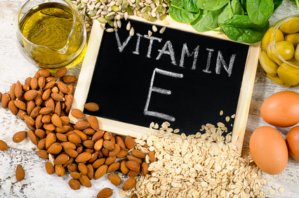 Vitamin E is said to be a powerful antioxidant that counteracts wrinkles, reduces the degeneration of joints in rheumatoid arthritis, and even protects against atherosclerosis and cancer. However, studies have shown contradictory results, and the positive effects are most probably a result of luck. Now, a team of international scientists has demonstrated that the effect of vitamin E is not related to the vitamin itself but rather to the effect of a vitamin E-dependent metabolite that is produced in the liver. The researchers see a huge potential in vitamin E therapy that is tailored to fit each person’s individual utilization and metabolism of the nutrient. Vitamin E supplements should contain natural forms of the vitamin to provide the best effect.
Vitamin E is said to be a powerful antioxidant that counteracts wrinkles, reduces the degeneration of joints in rheumatoid arthritis, and even protects against atherosclerosis and cancer. However, studies have shown contradictory results, and the positive effects are most probably a result of luck. Now, a team of international scientists has demonstrated that the effect of vitamin E is not related to the vitamin itself but rather to the effect of a vitamin E-dependent metabolite that is produced in the liver. The researchers see a huge potential in vitamin E therapy that is tailored to fit each person’s individual utilization and metabolism of the nutrient. Vitamin E supplements should contain natural forms of the vitamin to provide the best effect.
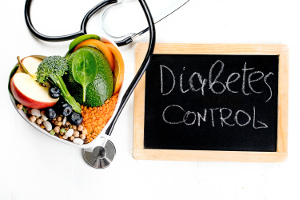 Type 2 diabetes is spreading like a bushfire and is the major cause of vision loss, kidney failure, heart attacks, strokes, and leg amputations. Many people have insulin resistance, the early stage of type diabetes that is associated with fatigue, untimely hunger, and increasing weight. The diet plays a major role and according to a new review article that is published in Human Nutrition and Metabolism, various B vitamins, vitamin D, vitamin K, vitamin E, and zinc influence insulin resistance and diabetes treatment. Previous research has also shown that chromium and magnesium play a role in insulin resistance and blood sugar regulation.
Type 2 diabetes is spreading like a bushfire and is the major cause of vision loss, kidney failure, heart attacks, strokes, and leg amputations. Many people have insulin resistance, the early stage of type diabetes that is associated with fatigue, untimely hunger, and increasing weight. The diet plays a major role and according to a new review article that is published in Human Nutrition and Metabolism, various B vitamins, vitamin D, vitamin K, vitamin E, and zinc influence insulin resistance and diabetes treatment. Previous research has also shown that chromium and magnesium play a role in insulin resistance and blood sugar regulation.
– and that can save lives
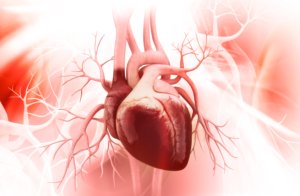 Heart attack is one of the leading causes of death worldwide. A heart attack may cause permanent damage to the cardiac muscle and that can impair the patient’s quality of life. According to a new pre-clinical study that is published in Redox Biology, immediate treatment with vitamin E may counteract lasting cardiac damage, and the researchers believe this could represent a new and inexpensive treatment option. Earlier studies have shown that high-dosed supplementation with pharmaceutical-grade Q10 significantly improves both quality of life and survival in patients with chronic heart failure.
Heart attack is one of the leading causes of death worldwide. A heart attack may cause permanent damage to the cardiac muscle and that can impair the patient’s quality of life. According to a new pre-clinical study that is published in Redox Biology, immediate treatment with vitamin E may counteract lasting cardiac damage, and the researchers believe this could represent a new and inexpensive treatment option. Earlier studies have shown that high-dosed supplementation with pharmaceutical-grade Q10 significantly improves both quality of life and survival in patients with chronic heart failure.
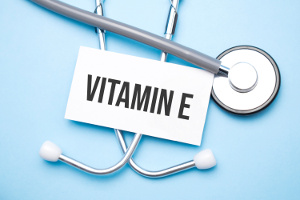 Immunotherapy has a special potential when used to treat cancer, which is because this particular type of therapy inhibits special molecules that block the body’s own defense mechanism against cancer cells. A team of scientists from Texas has discovered that vitamin E inhibits a particular molecule, thereby boosting the immunotherapy’s ability to stimulate important white blood cells. The scientists made this discovery by analyzing clinical data and in-depth laboratory studies. Vitamin E may play a future role in the preventiontreatment and of cancer.
Immunotherapy has a special potential when used to treat cancer, which is because this particular type of therapy inhibits special molecules that block the body’s own defense mechanism against cancer cells. A team of scientists from Texas has discovered that vitamin E inhibits a particular molecule, thereby boosting the immunotherapy’s ability to stimulate important white blood cells. The scientists made this discovery by analyzing clinical data and in-depth laboratory studies. Vitamin E may play a future role in the preventiontreatment and of cancer.
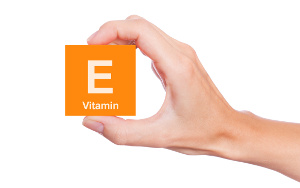 According to an article that is published in StatPearls, vitamin E is a powerful antioxidant that protects against atherosclerosis, cardiovascular disease, and blood clots. Vitamin E is also important for fertility, cell functions, and immune defense. A low-fat diet may result in a vitamin E deficiency. You should also beware that diseases characterized by impaired lipid absorption may increase you need for vitamin E.
According to an article that is published in StatPearls, vitamin E is a powerful antioxidant that protects against atherosclerosis, cardiovascular disease, and blood clots. Vitamin E is also important for fertility, cell functions, and immune defense. A low-fat diet may result in a vitamin E deficiency. You should also beware that diseases characterized by impaired lipid absorption may increase you need for vitamin E.
 It is vital to take good care of your eyes throughout life to maintain good vision. Our eyes need a number of different vitamins, minerals, and fatty acids that are important for cellular function and for protecting against oxidative stress. In this article, you can read more about vitamin A, vitamin C, vitamin E, B vitamins, zinc, selenium, omega-3 fatty acids, and Q10 and their vital role in maintaining healthy vision. We will also look at certain antioxidants that are found in eggs, salmon, spinach, broccoli, red bell pepper, and blueberries.
It is vital to take good care of your eyes throughout life to maintain good vision. Our eyes need a number of different vitamins, minerals, and fatty acids that are important for cellular function and for protecting against oxidative stress. In this article, you can read more about vitamin A, vitamin C, vitamin E, B vitamins, zinc, selenium, omega-3 fatty acids, and Q10 and their vital role in maintaining healthy vision. We will also look at certain antioxidants that are found in eggs, salmon, spinach, broccoli, red bell pepper, and blueberries.
 Some people prefer to eat raw vegetables in combination with meat or fish or as entirely raw vegan diets. They believe it is healthier and delivers more energy. But the truth is that some vegetables are healthier and provide more antioxidants if you heat them. That’s the case with tomatoes, bell pepper, carrots, spinach, and mushrooms. And remember that raw mushrooms contain toxins that are broken down by cooking.
Some people prefer to eat raw vegetables in combination with meat or fish or as entirely raw vegan diets. They believe it is healthier and delivers more energy. But the truth is that some vegetables are healthier and provide more antioxidants if you heat them. That’s the case with tomatoes, bell pepper, carrots, spinach, and mushrooms. And remember that raw mushrooms contain toxins that are broken down by cooking.
 The number of older people is constantly increasing, and more and more people suffer from Alzheimer’s disease and other types of dementia. Apparently, seniors who take a daily multivitamin can improve their memory and slow down their cognitive decline, according to a meta-analysis that is published in Journal of Clinical Nutrition. Older people generally have increased need for certain vitamins and minerals because of poor nutrient absorption in the digestive system, impaired enzyme functions, oxidative stress, and regular use of medical drugs that can interact with the nutrients. But how do different vitamins and minerals affect brain health?
The number of older people is constantly increasing, and more and more people suffer from Alzheimer’s disease and other types of dementia. Apparently, seniors who take a daily multivitamin can improve their memory and slow down their cognitive decline, according to a meta-analysis that is published in Journal of Clinical Nutrition. Older people generally have increased need for certain vitamins and minerals because of poor nutrient absorption in the digestive system, impaired enzyme functions, oxidative stress, and regular use of medical drugs that can interact with the nutrients. But how do different vitamins and minerals affect brain health?







 Magnesium is important for numerous physiological functions. In a new review article published in Nutrients, researchers have looked at the relation between the body’s magnesium levels and a variety of different ageing markers. Also, they hypothesize that optimal intake of magnesium throughout life is an easy and inexpensive way to obtain healthy ageing.
Magnesium is important for numerous physiological functions. In a new review article published in Nutrients, researchers have looked at the relation between the body’s magnesium levels and a variety of different ageing markers. Also, they hypothesize that optimal intake of magnesium throughout life is an easy and inexpensive way to obtain healthy ageing.

 Impaired sperm quality if one of the major reasons for involuntary infertility. Studies show that oxidative stress, an imbalance between harmful free radicals and protective antioxidants, causes damage to sperm cells. In a review article that is published in Reproductive Sciences, a group of researchers look closer at different molecular mechanisms and how vitamins C, E, selenium, zinc, and coenzyme Q10 plus other antioxidants protect the vulnerable sperm cells.
Impaired sperm quality if one of the major reasons for involuntary infertility. Studies show that oxidative stress, an imbalance between harmful free radicals and protective antioxidants, causes damage to sperm cells. In a review article that is published in Reproductive Sciences, a group of researchers look closer at different molecular mechanisms and how vitamins C, E, selenium, zinc, and coenzyme Q10 plus other antioxidants protect the vulnerable sperm cells. Antioxidants such as vitamins C and E are known to be inversely related to type 1 diabetes, which is an autoimmune disease. In a new Swedish study that is published in Nutrients, scientists have found that vitamin E also protects against type 1,5 diabetes, which is similar to type 1 and type 2 diabetes because it involves both autoimmune reactions re
Antioxidants such as vitamins C and E are known to be inversely related to type 1 diabetes, which is an autoimmune disease. In a new Swedish study that is published in Nutrients, scientists have found that vitamin E also protects against type 1,5 diabetes, which is similar to type 1 and type 2 diabetes because it involves both autoimmune reactions re According to Danish research, more than one in three women suspect that their birth control pills cause side effects. Other studies show that birth control pills affect the body’s ability to utilize several different B vitamins, vitamin C, vitamin E, magnesium, selenium, and zinc. The lack of these essential nutrients contributes to a number of common side effects such as fluid retention, blood clots, cancer, and depression.
According to Danish research, more than one in three women suspect that their birth control pills cause side effects. Other studies show that birth control pills affect the body’s ability to utilize several different B vitamins, vitamin C, vitamin E, magnesium, selenium, and zinc. The lack of these essential nutrients contributes to a number of common side effects such as fluid retention, blood clots, cancer, and depression. There is a link between depression, dementia and Alzheimer’s disease. Also, it appears that chronic stress contributes to oxidative stress and brain cell damage. In a review article that is published in the science journal Antioxidants, researchers look closer at how oxidative stress affects the brain. They also study how antioxidants can be included in the prevention and treatment of Alzheimer’s disease, and why the most promising results are seen with selenium, Q10, melatonin, vitamin E, turmeric, and polyphenols. With regard to depression, selenium, zinc, vitamin E, turmeric, and saffron have demonstrated the greatest potential.
There is a link between depression, dementia and Alzheimer’s disease. Also, it appears that chronic stress contributes to oxidative stress and brain cell damage. In a review article that is published in the science journal Antioxidants, researchers look closer at how oxidative stress affects the brain. They also study how antioxidants can be included in the prevention and treatment of Alzheimer’s disease, and why the most promising results are seen with selenium, Q10, melatonin, vitamin E, turmeric, and polyphenols. With regard to depression, selenium, zinc, vitamin E, turmeric, and saffron have demonstrated the greatest potential. Weight-challenged children and teenagers have grown to become a global health threat, and the problem became even worse during the corona pandemic. Overweight is linked to a number of health problems, including non-alcoholic fatty liver disease that sets the stage for type 2 diabetes and other serious ailments. In a new review article that is published in Nutrients, researchers look closer at how a carbohydrate-restricted diet or the traditional Mediterranean diet can help to counteract the development of overweight and non-alcoholic fatty liver disease. Also, supplementation with vitamin E, vitamin D, fish oil, and probiotics can block the development of non-alcoholic fatty liver via different metabolic parameters.
Weight-challenged children and teenagers have grown to become a global health threat, and the problem became even worse during the corona pandemic. Overweight is linked to a number of health problems, including non-alcoholic fatty liver disease that sets the stage for type 2 diabetes and other serious ailments. In a new review article that is published in Nutrients, researchers look closer at how a carbohydrate-restricted diet or the traditional Mediterranean diet can help to counteract the development of overweight and non-alcoholic fatty liver disease. Also, supplementation with vitamin E, vitamin D, fish oil, and probiotics can block the development of non-alcoholic fatty liver via different metabolic parameters. The majority of sexually active people contract HPV (human papilloma virus), of which there are several types. Normally, the infection goes away by itself but in some cases it becomes chronic. This increases the risk of serious cell changes in the cervix which, in worst case, can result in cervical cancer. An American study has found that having adequate levels of five different antioxidants – albumin plus vitamins A, B2, E, and folic acid – may lower papilloma virus infections that are linked to cervical cancer.
The majority of sexually active people contract HPV (human papilloma virus), of which there are several types. Normally, the infection goes away by itself but in some cases it becomes chronic. This increases the risk of serious cell changes in the cervix which, in worst case, can result in cervical cancer. An American study has found that having adequate levels of five different antioxidants – albumin plus vitamins A, B2, E, and folic acid – may lower papilloma virus infections that are linked to cervical cancer. There are around 750,000 people in Denmark who take several medical drugs per day, and the number of users is on the rise. What many people are unaware of is that different drugs can disrupt the body’s ability to absorb or utilize one or several nutrients, especially things like B vitamins, vitamin C, vitamin D, vitamin K2, magnesium, potassium, calcium, zinc, iron, and coenzyme Q10. It is therefore vital to get sufficient amounts of the mentioned nutrients to reduce the risk of adverse effects.
There are around 750,000 people in Denmark who take several medical drugs per day, and the number of users is on the rise. What many people are unaware of is that different drugs can disrupt the body’s ability to absorb or utilize one or several nutrients, especially things like B vitamins, vitamin C, vitamin D, vitamin K2, magnesium, potassium, calcium, zinc, iron, and coenzyme Q10. It is therefore vital to get sufficient amounts of the mentioned nutrients to reduce the risk of adverse effects. PCOS – or polycystic ovary syndrome – is a problem that occurs in 5-10 percent of women of childbearing age. It is the most common cause of involuntary infertility. Related symptoms include tiredness, hirsutism (male hair growth), acne, and irregular menstrual periods. PCOS is often linked to instable blood sugar, increased risk of insulin resistance, overweight, cardiovascular disease, type 2 diabetes, and autoimmune diseases like Hashimoto’s thyroiditis that causes slow metabolism. Diet and exercise mean a lot in terms of prevention and treatment. The same is the case with different vitamins and minerals. We will be looking closer at B vitamins, vitamin D, vitamin E, and coenzyme Q10, plus magnesium, zinc, selenium, chromium, iodine, and fish oil. We will also be looking at how relevant supplements, according to science, can help control blood sugar levels and the hormone balance.
PCOS – or polycystic ovary syndrome – is a problem that occurs in 5-10 percent of women of childbearing age. It is the most common cause of involuntary infertility. Related symptoms include tiredness, hirsutism (male hair growth), acne, and irregular menstrual periods. PCOS is often linked to instable blood sugar, increased risk of insulin resistance, overweight, cardiovascular disease, type 2 diabetes, and autoimmune diseases like Hashimoto’s thyroiditis that causes slow metabolism. Diet and exercise mean a lot in terms of prevention and treatment. The same is the case with different vitamins and minerals. We will be looking closer at B vitamins, vitamin D, vitamin E, and coenzyme Q10, plus magnesium, zinc, selenium, chromium, iodine, and fish oil. We will also be looking at how relevant supplements, according to science, can help control blood sugar levels and the hormone balance. Everyone knows that exercise and sports activities are good for you, but overtraining and high-performance sport may increase your risk of oxidative stress, which is associated with acute injuries, inflammation and later risk of neurodegenerative disease such as Alzheimer’s disease and ALS (amyotrophic lateral sclerosis). It is therefore a good idea to take antioxidant supplements, as this may help prevent both acute and chronic injuries. A comprehensive article published in the science journal Nutrients looks closer at the relation between free radicals and antioxidants, which have different functions in connection with various types of physical activity. This is especially the case with vitamins A, C, and E plus selenium and zinc. It is also important to make sure to get enough vitamin D and omega-3 fatty acids for counteracting inflammation and oxidative stress.
Everyone knows that exercise and sports activities are good for you, but overtraining and high-performance sport may increase your risk of oxidative stress, which is associated with acute injuries, inflammation and later risk of neurodegenerative disease such as Alzheimer’s disease and ALS (amyotrophic lateral sclerosis). It is therefore a good idea to take antioxidant supplements, as this may help prevent both acute and chronic injuries. A comprehensive article published in the science journal Nutrients looks closer at the relation between free radicals and antioxidants, which have different functions in connection with various types of physical activity. This is especially the case with vitamins A, C, and E plus selenium and zinc. It is also important to make sure to get enough vitamin D and omega-3 fatty acids for counteracting inflammation and oxidative stress. Regular sport is good for you, whereas arduous training and high-performance sport can result in physical injuries, infections, chronic inflammation, and serious diseases due to oxidative stress. This phenomenon occurs as a result of the increased energy turnover, which produces an excess of free radicals that cause damage to cells and tissues. Oxidative stress is also associated with impaired performance, poor restitution, and faster ageing. Our only natural defense against free radicals is the presence of antioxidants, and it is especially things like vitamin C, vitamin E, selenium, zinc, Q10, omega-3 fatty acids, and turmeric that protect against oxidative damage and improve recovery time. According to a review article published in Nutrients, supplements with the right doses of different nutrients can also help boost your physical and mental performance.
Regular sport is good for you, whereas arduous training and high-performance sport can result in physical injuries, infections, chronic inflammation, and serious diseases due to oxidative stress. This phenomenon occurs as a result of the increased energy turnover, which produces an excess of free radicals that cause damage to cells and tissues. Oxidative stress is also associated with impaired performance, poor restitution, and faster ageing. Our only natural defense against free radicals is the presence of antioxidants, and it is especially things like vitamin C, vitamin E, selenium, zinc, Q10, omega-3 fatty acids, and turmeric that protect against oxidative damage and improve recovery time. According to a review article published in Nutrients, supplements with the right doses of different nutrients can also help boost your physical and mental performance.

 Heart attack is one of the leading causes of death worldwide. A heart attack may cause permanent damage to the cardiac muscle and that can impair the patient’s quality of life. According to a new pre-clinical study that is published in Redox Biology, immediate treatment with vitamin E may counteract lasting cardiac damage, and the researchers believe this could represent a new and inexpensive treatment option. Earlier studies have shown that high-dosed supplementation with pharmaceutical-grade Q10 significantly improves both quality of life and survival in patients with chronic heart failure.
Heart attack is one of the leading causes of death worldwide. A heart attack may cause permanent damage to the cardiac muscle and that can impair the patient’s quality of life. According to a new pre-clinical study that is published in Redox Biology, immediate treatment with vitamin E may counteract lasting cardiac damage, and the researchers believe this could represent a new and inexpensive treatment option. Earlier studies have shown that high-dosed supplementation with pharmaceutical-grade Q10 significantly improves both quality of life and survival in patients with chronic heart failure. Immunotherapy has a special potential when used to treat cancer, which is because this particular type of therapy inhibits special molecules that block the body’s own defense mechanism against cancer cells. A team of scientists from Texas has discovered that vitamin E inhibits a particular molecule, thereby boosting the immunotherapy’s ability to stimulate important white blood cells. The scientists made this discovery by analyzing clinical data and in-depth laboratory studies. Vitamin E may play a future role in the prevention
Immunotherapy has a special potential when used to treat cancer, which is because this particular type of therapy inhibits special molecules that block the body’s own defense mechanism against cancer cells. A team of scientists from Texas has discovered that vitamin E inhibits a particular molecule, thereby boosting the immunotherapy’s ability to stimulate important white blood cells. The scientists made this discovery by analyzing clinical data and in-depth laboratory studies. Vitamin E may play a future role in the prevention According to an article that is published in StatPearls, vitamin E is a powerful antioxidant that protects against atherosclerosis, cardiovascular disease, and blood clots. Vitamin E is also important for fertility, cell functions, and immune defense. A low-fat diet may result in a vitamin E deficiency. You should also beware that diseases characterized by impaired lipid absorption may increase you need for vitamin E.
According to an article that is published in StatPearls, vitamin E is a powerful antioxidant that protects against atherosclerosis, cardiovascular disease, and blood clots. Vitamin E is also important for fertility, cell functions, and immune defense. A low-fat diet may result in a vitamin E deficiency. You should also beware that diseases characterized by impaired lipid absorption may increase you need for vitamin E. It is vital to take good care of your eyes throughout life to maintain good vision. Our eyes need a number of different vitamins, minerals, and fatty acids that are important for cellular function and for protecting against oxidative stress. In this article, you can read more about vitamin A, vitamin C, vitamin E, B vitamins, zinc, selenium, omega-3 fatty acids, and Q10 and their vital role in maintaining healthy vision. We will also look at certain antioxidants that are found in eggs, salmon, spinach, broccoli, red bell pepper, and blueberries.
It is vital to take good care of your eyes throughout life to maintain good vision. Our eyes need a number of different vitamins, minerals, and fatty acids that are important for cellular function and for protecting against oxidative stress. In this article, you can read more about vitamin A, vitamin C, vitamin E, B vitamins, zinc, selenium, omega-3 fatty acids, and Q10 and their vital role in maintaining healthy vision. We will also look at certain antioxidants that are found in eggs, salmon, spinach, broccoli, red bell pepper, and blueberries. Some people prefer to eat raw vegetables in combination with meat or fish or as entirely raw vegan diets. They believe it is healthier and delivers more energy. But the truth is that some vegetables are healthier and provide more antioxidants if you heat them. That’s the case with tomatoes, bell pepper, carrots, spinach, and mushrooms. And remember that raw mushrooms contain toxins that are broken down by cooking.
Some people prefer to eat raw vegetables in combination with meat or fish or as entirely raw vegan diets. They believe it is healthier and delivers more energy. But the truth is that some vegetables are healthier and provide more antioxidants if you heat them. That’s the case with tomatoes, bell pepper, carrots, spinach, and mushrooms. And remember that raw mushrooms contain toxins that are broken down by cooking. "After about one week of taking the Q10 supplement I could feel a huge difference," says 23-year old Alan Piccini, who has been suffering from extreme fatigue and muscle aches ever since he was a child.
"After about one week of taking the Q10 supplement I could feel a huge difference," says 23-year old Alan Piccini, who has been suffering from extreme fatigue and muscle aches ever since he was a child. “Taking capsules with co-enzyme Q10 has freed me of the severe side effects of my cholesterol lowering medicine,” Mrs Franken explains.
“Taking capsules with co-enzyme Q10 has freed me of the severe side effects of my cholesterol lowering medicine,” Mrs Franken explains.